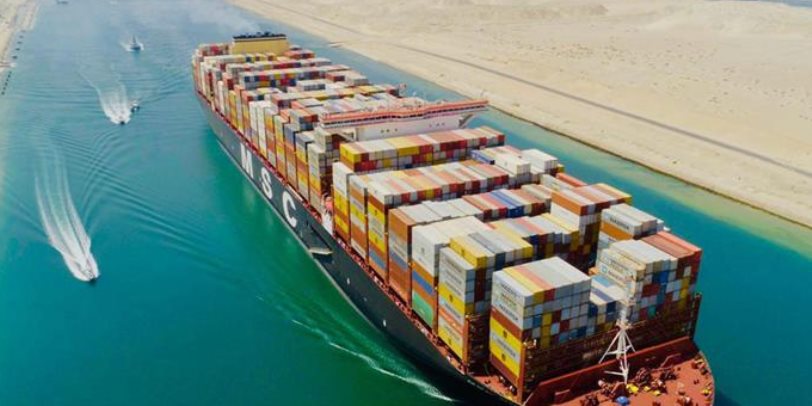Escalating tensions in the Red Sea & its impact on Suez Canal revenues
The revenue generated by the canal holds vital significance for Egypt's economy, as it serves as one of the primary sources of foreign currency, which is currently in short supply

The occurrence of attacks on commercial ships in the southern part of the Red Sea led numerous shipping companies to alter their course and bypass the Suez Canal in the north to access the Mediterranean. Consequently, the revenues of the Suez Canal witnessed a downturn due to this shift in shipping routes.
The revenue generated by the canal holds vital significance for Egypt's economy, as it serves as one of the primary sources of foreign currency, which is currently in short supply.
This shifting in shipping routes, leads to a rise in the cost of transporting goods. Consequently, the cumulative effect of these cost increases on each shipment will ultimately be passed on to end consumers, resulting in higher prices for food, goods, and services.
The escalation began from October 2023, when Houthi forces launched attacks on ships affiliated with Israel. These attacks were a direct retaliation to the Israeli war in Gaza.These incidents impact global trade as a whole, besides affecting the Suez Canal specifically.
Earlier in December 2023, the German Kiel Institute for Economy reported that global trade declined by 1.3% in the period from November to December 2023, due to the attacks in the Red Sea.
The attacks have prompted the world’s five largest container lines, representing around 65% of global shipping capacity, to suspend passage through the Suez Canal, with traffic having dropped by about 39% since the start of December, leading to a 45% drop in freight tonnage, according to figures from the United Nations.
The President of the International Maritime Organization told international media that 60% of ships passing through the Suez Canal were diverted to South Africa. He added that diverting ships is not a solution to the crisis in the Red Sea.
It is important to note that prior to these incidents, the Suez Canal's revenues in 2023 had been witnessing notable growth.
The revenues recorded $9.4 billion in FY 2022/2023, compared to $7 billion in FY 2021/2022, an increase of 34.7%, according to a statement by the Chairman of the Suez Canal Authority, Osama Rabie.
Rabie disclosed that because of these attacks, the Suez Canal's revenue experienced a decline in January 2024. The revenue dropped by 46.7%, amounting to $428 million compared to $804 million in January 2023.
According to data from the Suez Canal Authority, in January 2023 the canal recorded revenues of $804 million, in February the revenues reached $745.7 million, in March it recorded $ 835.5 million, and in April $904.5 million.
Additionally, the Canal's revenues in May recorded $948 million, in June recorded $866.1 million, in July reached $903.5 million, in August recorded $888.6 million, in September it reached $857.04 million, in October the revenues recorded $880 million, and in November it reached $854.7 million.
From December 2023, the revenues started to witness a slight decline due to the Red Sea attacks, to record $748.9 million.
The decline in Suez Canal’s revenues due to the red sea attacks can be partially absorbed due to the positive growth experienced prior to the onset of these incidents, Minister of Finance, Mohamed Maait announced on the sidelines of the World Government Summit in Dubai.
How Suez Canal is important to Egypt
The Suez Canal acquires around 12% of global trade flows. About 5%, 10%, and 8% of the world’s flows of crude oil, oil products, and liquified natural gas (LNG) pass through the canal. Moreover, the Suez Canal is also an important choke point in the global food trade, including cereal and fertilizer imports.
Earlier in August 2023, the Cabinet Media Center reported that the number of ships that have crossed the Suez Canal since its nationalization is 1.07 million ships, with a net tonnage of 31.6 billion tons, pumping $143.9 billion into the public treasury.





